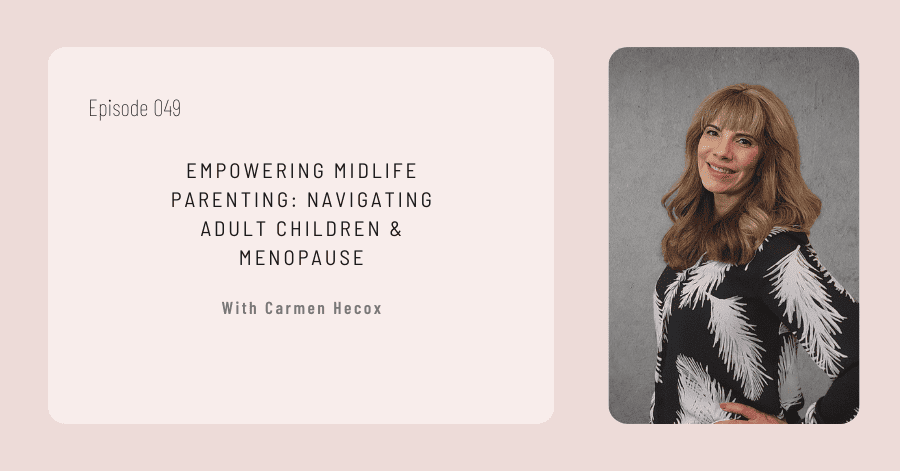Empowering Midlife Parenting: Navigating Adult Children & Menopause
Transforming Challenges into Triumphs in Your Midlife Journey
Have you ever felt like you’re embarking on a new chapter in life where the rules of the game have suddenly changed? Welcome to the world of midlife parenting adult children during the rollercoaster ride of menopause! It's a journey that's as bewildering as it is rewarding, and I'm here to share the insights and laughter along the way.
Introduction
Today, we’re diving into the heart of this unique life stage. From fostering independence in our grown-up children to setting boundaries and redefining our roles, this is a guide for every woman sailing through the waves of midlife and menopause. Brace yourself for a voyage of discovery, empowerment, and a touch of humor!
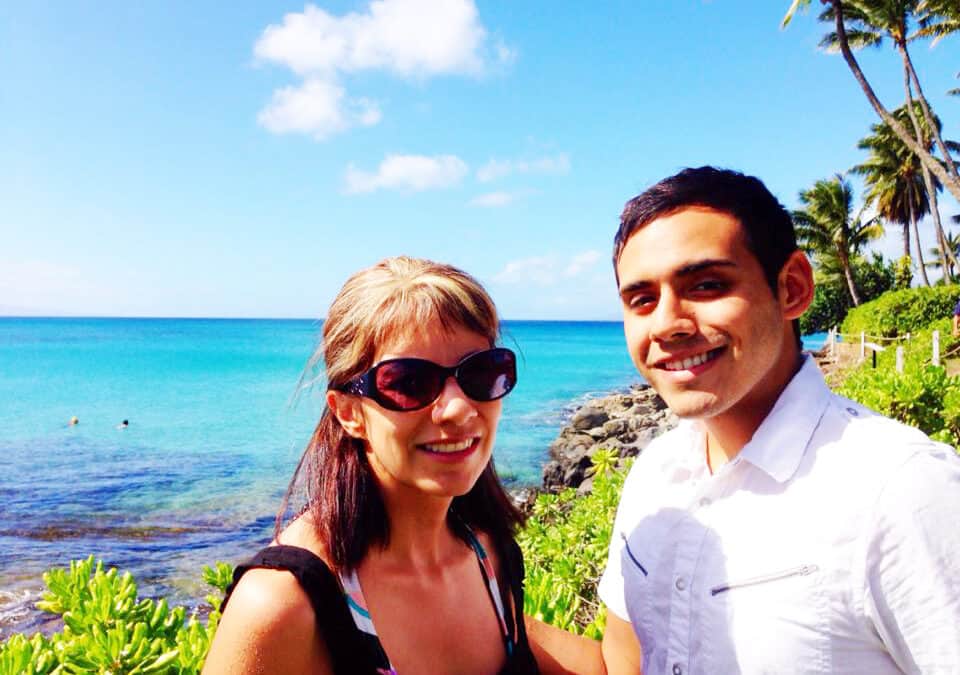
The Superpowers of Menopause
Embracing a New Chapter with Wisdom and Humor
Menopause, a word often whispered with a mix of apprehension and mystery, actually brings a hidden trove of superpowers that can transform our parenting approach. It’s a time of profound change, not just physically but in every facet of our lives, including how we interact with our adult children.
As we navigate this natural transition, we often discover an inner reservoir of wisdom, a product of the many life experiences we've weathered. This wisdom becomes our guiding light in understanding and empathizing with our adult children’s struggles and triumphs. Menopause doesn't dull our senses; instead, it sharpens them, enabling us to perceive situations with a clarity born of experience. We learn to choose our battles, to discern when to offer advice, and when to simply listen.
But it's not all solemn introspection. Humor, too, emerges as a powerful ally during menopause. There’s something about the ability to laugh at the hot flashes, the mood swings, and even the more challenging moments of parenting that brings a lightness to our lives. This sense of humor becomes a bridge, connecting us with our adult children in ways that are relatable and real. It allows us to tackle even the most delicate of topics with a touch of lightheartedness, smoothing the way for deeper conversations and understanding.
This blend of wisdom and humor is what makes parenting during menopause unique. It’s like wearing a pair of glasses that suddenly brings everything into focus, helping us to see our adult children not just as extensions of ourselves but as the independent, capable individuals they have become.
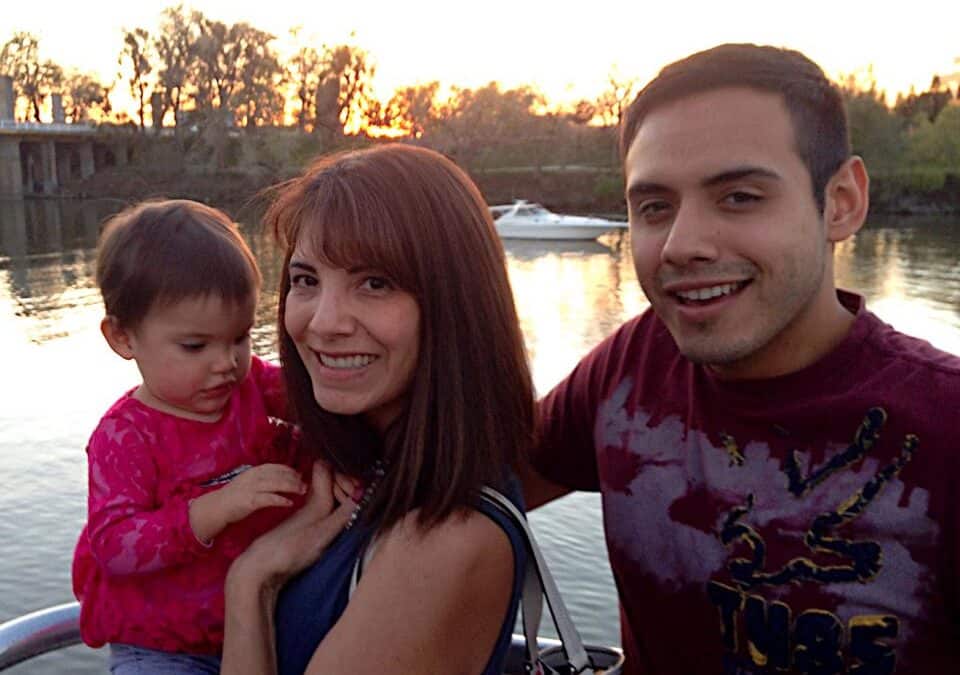
Transitioning Roles
From ‘Fix-It' Parent to “Guide-on-the-Side”
Emerging from the enlightening phase of menopause, we often find ourselves reassessing our role as parents. Gone are the days of being the ‘fix-it' parent, the one who could make everything better with a kiss or a cookie. Now, as our children stand on the threshold of adulthood, our role evolves into something more nuanced, more advisory.
This transition can be likened to stepping back from the driver’s seat and, instead, offering guidance from the passenger side. We’re still there, still involved, but we’re no longer in control of the journey. It's about trusting our adult children to make their own decisions and to navigate their own paths. It’s a subtle shift from directing to guiding, from leading to supporting.
In this new role, we become listeners more than speakers and advisors more than deciders. We offer the wisdom we've garnered through years of parenting, but we leave the choices to them. It's a delicate balance, finding the right moments to share our insights without overshadowing their autonomy.
This role transition, fueled by the superpowers of wisdom and humor we've embraced in menopause, becomes less daunting and more rewarding. We get to witness our children's journey into adulthood, offering guidance when asked, and stepping back to watch them soar. It’s a testament to the resilience and adaptability that we, as parents, have developed through our own life’s journey.
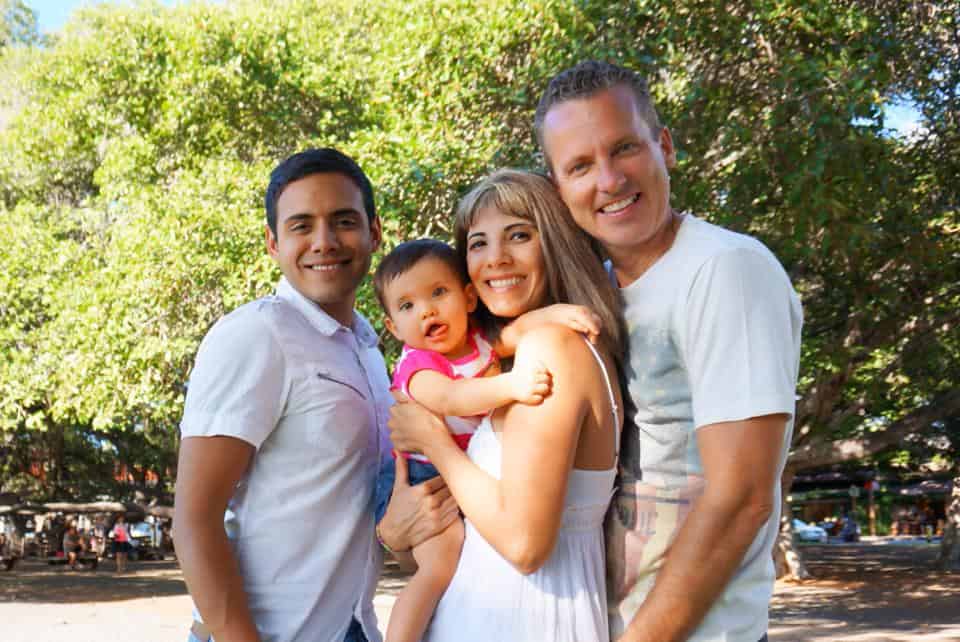
The Art of Supportive Parenting
Striking the Perfect Balance
The art of supportive parenting, especially as we navigate the complexities of midlife and menopause, is akin to walking a tightrope. On one side, there’s the instinct to rush in and fix every problem for our adult children. On the other, there's the realization that they must forge their own paths. Striking the perfect balance in this delicate dance is key to nurturing a healthy, mature relationship.
This new phase of parenting is less about direct intervention and more about being a reassuring presence. It’s about understanding that being supportive doesn't always mean solving their problems. Instead, it's offering a listening ear, a shoulder to lean on, or just being there with a warm, encouraging smile. It's letting them know through our actions and words, “I believe in you, and you’ve got this,” while respecting their ability to handle their own challenges.
But how do we resist the urge to step in? It starts with self-reflection and a conscious shift in our mindset. We need to remind ourselves that our adult children’s struggles are opportunities for them to learn and grow. By stepping back, we allow them to develop resilience, problem-solving skills, and the confidence that comes from overcoming obstacles on their own.
The beauty of supportive parenting lies in its subtlety. It’s about shifting our role from being the chief problem-solver to a wise consultant who’s called upon when needed. It’s a transition from doing for them to being with them. And in this space, we find the joy of watching our children navigate life as capable, independent adults, a reflection of the values and lessons we’ve imparted over the years.
Join our community
Connect with like-minded individuals.
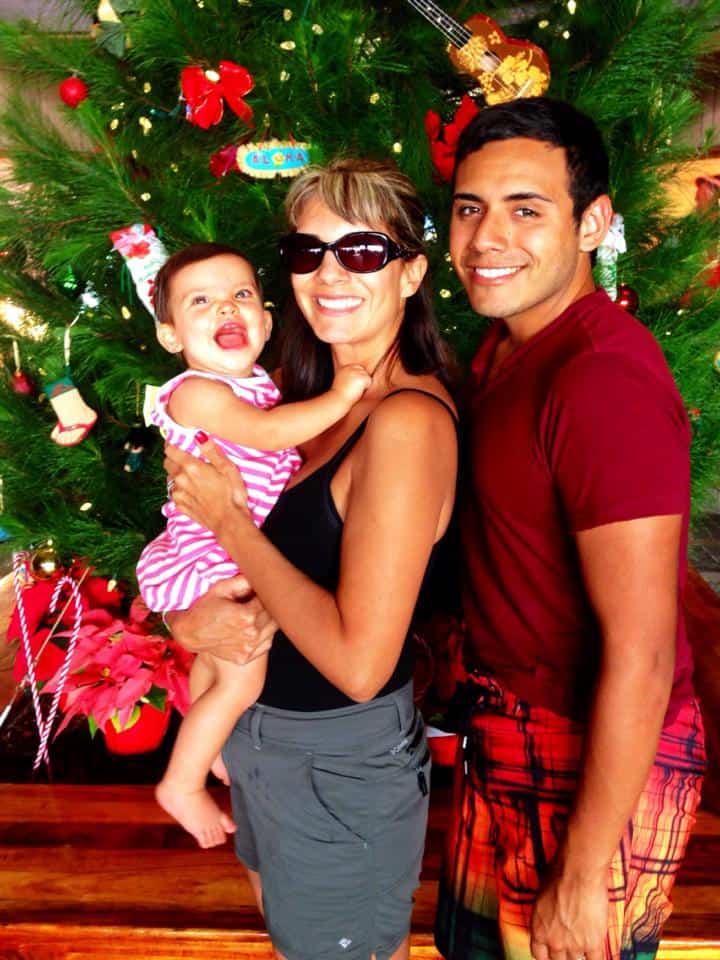
Mastering Open and Honest Communication
Building Stronger Bonds with Adult Children
As we master the art of supportive parenting, a cornerstone that holds this structure together is open and honest communication. In this stage of life, communication goes beyond mere exchanges of information; it’s about building stronger, deeper connections with our adult children.
Effective communication in this context involves active listening. It’s about truly hearing what our children are saying – and sometimes what they’re not saying. It's tuning into not just their words, but also their emotions, hopes, and underlying concerns. It’s about being an empathetic detective, piecing together the unspoken messages conveyed through their words and behaviors.
Creating a safe space for open dialogue is crucial. It means having conversations free from judgment and premature solutions. It’s about fostering an environment where thoughts and feelings can flow freely and where our children feel comfortable sharing their triumphs and vulnerabilities.
In this stage of life, it’s also about learning to moderate our instinct to give advice. The key is to ask guiding questions rather than offering directives. Instead of jumping in with “Here’s what you should do,” we can frame our responses as “What do you think your options are?” This subtle shift empowers our children to find their own solutions while knowing we are there as a supportive resource.
Honesty in communication is a two-way street. While we encourage our children to be open, we must also be transparent about our feelings and thoughts. Sharing our own experiences and insights, not as a directive but as a point of connection, enriches these conversations. It's an exchange of wisdom and perspectives, a dialogue between adults who respect and value each other’s views.
As we embrace open and honest communication, we not only strengthen our relationship with our adult children but also model the kind of communication skills that will serve them well in all areas of their lives. In these moments of heartfelt conversation, we forge bonds that are based on mutual respect and understanding, a foundation that supports both their independence and our evolving journey as parents.
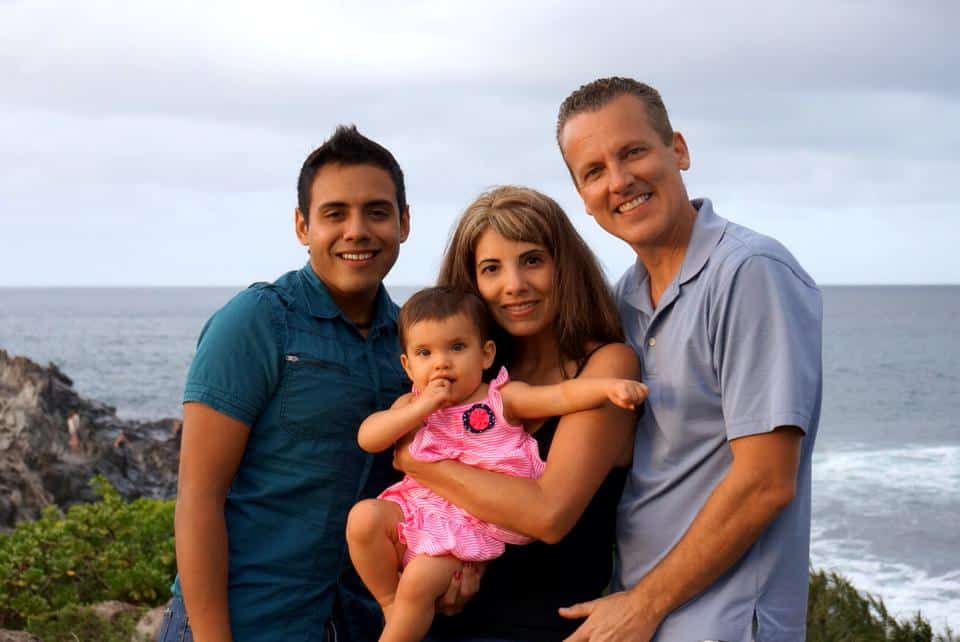
Midlife Parenting Establishing Boundaries
Navigating the Invisible Lines
When it comes to parenting adult children, especially in the midst of menopause, establishing boundaries is akin to navigating invisible lines. These boundaries are crucial not just for their growth, but for our peace of mind as well. This process is about drawing a map that outlines where our parental role ends and their journey as independent adults begins. It’s about defining, “This is your space to grow, and this is mine.”
Setting these boundaries begins with clear, respectful, and honest communication. It involves sitting down with our adult children and having candid discussions about expectations. What are they comfortable with? What are we comfortable with? It’s like negotiating a peace treaty but with more heart and understanding. These conversations help in delineating a mutual understanding of each other’s space and needs.
Remember, boundaries are not just for them; they’re for us as well. They protect our relationship from becoming a relentless cycle of dependency and frustration. It’s about respecting their decisions, their privacy, and their right to make mistakes. And it’s equally about them respecting our need for space, peace of mind, and our newfound interests and passions.
However, establishing boundaries also means knowing when to step back. It’s tempting to dive into every aspect of their lives, but the best support we can often give is the freedom for them to handle things themselves. This involves trusting them and the values we’ve instilled in them. It’s a liberating process for both sides, opening up a new dimension of mutual respect and understanding.

Fostering Independence
Empowering Our Children and Ourselves
In the seamless continuation of establishing boundaries, we find ourselves in the realm of fostering independence in our adult children. This aspect of parenting is a crucial step in their journey towards becoming self-reliant, confident individuals and is equally transformative for us as parents.
Why is fostering independence so vital? It allows our children to stretch their wings, to explore, make decisions, and even make mistakes. These experiences are invaluable; they’re the crucible in which resilience, self-confidence, and life skills are forged. It’s akin to teaching them to ride a bike. Initially, we’re running alongside them, but eventually, we let go, allowing them to pedal into their own journey.
But here’s the beautiful part – fostering their independence isn’t just beneficial for them; it’s liberating for us, too. As they become more self-sufficient, we get the opportunity to rediscover ourselves. We find more time to revisit old passions, explore new interests, and cultivate new relationships. It’s like receiving a passport to a new phase of our lives, one filled with possibilities and personal growth.
Furthermore, fostering independence leads to healthier relationships. It transforms the dynamic from dependency to mutual respect and understanding. We move from a “parent-child” relationship to an “adult-adult” one. This shift paves the way for new avenues of connection – where we’re not just their parent but also their trusted advisor, confidant, and friend.
Practically, when our children are independent, it means less worry for us. We can rest easy, knowing they can handle life’s ups and downs, manage their finances, and take care of themselves. It’s watching them sail their own ship, confident in their ability to navigate through any storm.
In essence, fostering independence in our adult children is one of the most significant gifts we can give – to them and ourselves. It’s a testament to our parenting, a tribute to their capabilities, and a foundation for a relationship that continues to evolve, enriching both our lives. As we navigate this journey, let’s celebrate every step towards independence, knowing it’s a path towards mutual growth and fulfillment.
Conclusion: Embracing the Journey Together
As we wrap up this exploration into the multifaceted world of parenting adult children during the transformative years of menopause, it becomes clear that this journey is about much more than just guiding our children. It's about embracing a new phase in our lives, a phase that is as enriching for us as it is for them. This journey is about transformation, growth, and finding new ways to connect and support each other.
Reflecting on the discussions we've had, from understanding the superpowers that come with menopause to the art of establishing boundaries and fostering independence, it's evident that parenting adult children is a dynamic and continuous learning experience. It's about redefining our roles, not just as parents but as individuals embarking on a new chapter of self-discovery and personal development.
This stage of life offers us a unique opportunity to witness the incredible individuals our children have become, shaped in part by the love and guidance we've provided. It's about celebrating their achievements, supporting them through their challenges, and reveling in the adults they have grown into. At the same time, it allows us the space to rediscover our passions, explore new interests, and engage with the world in ways we might not have had the time or opportunity to before.
As we navigate this journey, let's cherish each moment – the conversations, the shared experiences, and even the challenges. Each of these instances provides us with insights and opportunities to grow alongside our children. Let's embrace this evolving relationship with open arms and an open heart, knowing that each step forward is a step towards a deeper, more fulfilling connection.
If you've found resonance and insight in this post, I invite you to subscribe and join me in this ongoing conversation. Together, let's continue to navigate the ever-changing landscape of parenting adult children during menopause. Let's share our stories, our challenges, and our triumphs. Your journey is unique, but you're not alone on this path. Here's to embracing the changes, facing the challenges with grace, and enjoying every moment of this beautiful journey. Subscribe now, and let's continue to grow and learn together.
Watch the complete episode here.
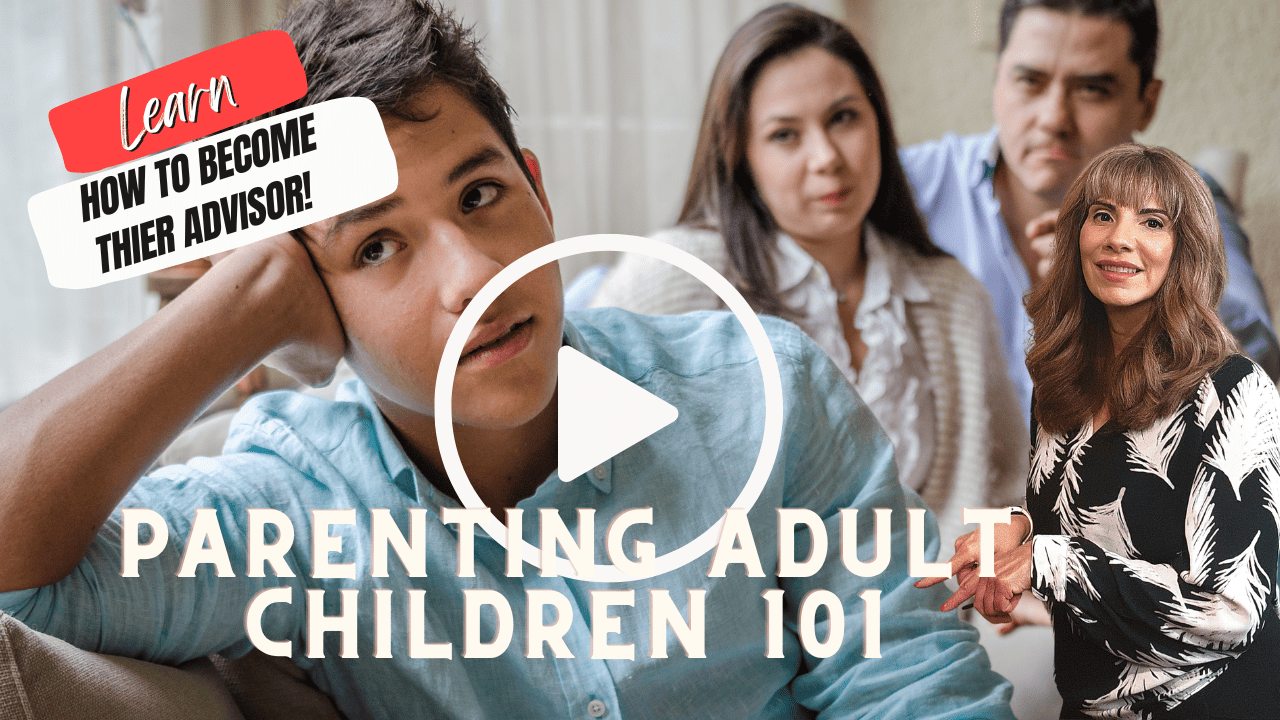
Resources Mentioned:
Subscribe to Apple Podcasts, and don't forget to Rate and Review
Like what you heard? If so, please rate and comment on Apple Podcasts. And while you are there, let me know what you want to hear next.
And while you are there, don't forget to hit Subscribe.

